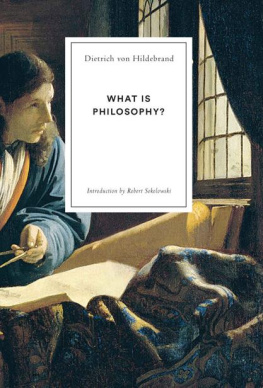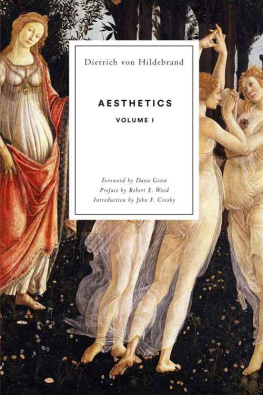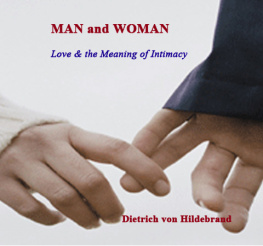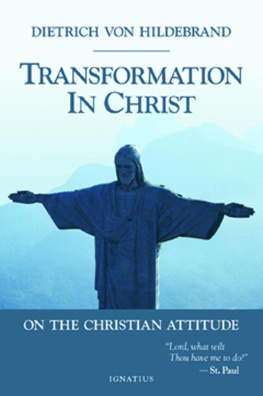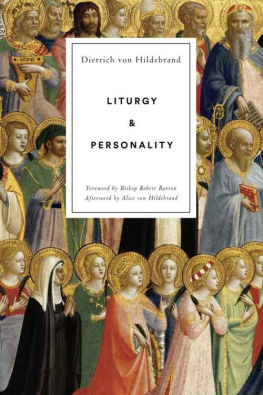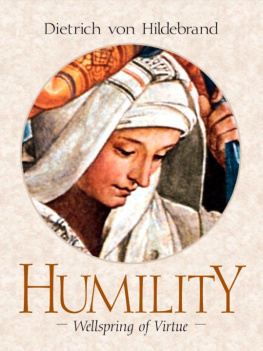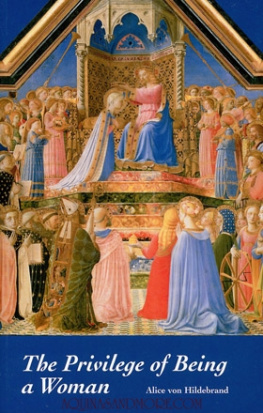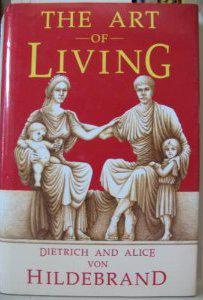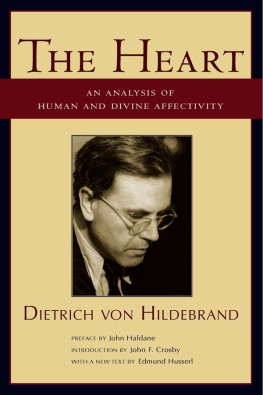Dietrich von Hildebrand - What Is Philosophy?
Here you can read online Dietrich von Hildebrand - What Is Philosophy? full text of the book (entire story) in english for free. Download pdf and epub, get meaning, cover and reviews about this ebook. year: 2021, publisher: Hildebrand Project, genre: Religion. Description of the work, (preface) as well as reviews are available. Best literature library LitArk.com created for fans of good reading and offers a wide selection of genres:
Romance novel
Science fiction
Adventure
Detective
Science
History
Home and family
Prose
Art
Politics
Computer
Non-fiction
Religion
Business
Children
Humor
Choose a favorite category and find really read worthwhile books. Enjoy immersion in the world of imagination, feel the emotions of the characters or learn something new for yourself, make an fascinating discovery.
- Book:What Is Philosophy?
- Author:
- Publisher:Hildebrand Project
- Genre:
- Year:2021
- Rating:3 / 5
- Favourites:Add to favourites
- Your mark:
What Is Philosophy?: summary, description and annotation
We offer to read an annotation, description, summary or preface (depends on what the author of the book "What Is Philosophy?" wrote himself). If you haven't found the necessary information about the book — write in the comments, we will try to find it.
What Is Philosophy? is a foundational study in epistemology by the eminent phenomenologist Dietrich von Hildebrand.
Hildebrand begins by analyzing closely the receptivity that is proper to all kinds of knowledge. As a result, Hildebrand holds a robust philosophical realism according to which the mind does not impose its terms on the object known, but receives the object on the objects own terms. He does acknowledge that certain aspects of the physical world do indeed depend on the human mind, such as color qualities, but he avoids idealism by the way he embeds these qualities within things that are known in their own proper being. Perhaps the major contribution of this work lies in the account that Hildebrand gives of our knowledge of the essential structures and laws of being (what the phenomenologists called eidetic intuition). Such knowledge is inconceivable to those empiricists who think that we connect with the world only by way of empirical observation. Hildebrand shows that in addition to such observation we also possess rational insight into what things essentially are and are not. With great originality, Hildebrand examines just what kind of essential structure it is that makes possible rational insight into necessary laws of being. He also engages in debate with those empiricists who think that these necessary laws of being are reducible to tautologies. He argues that these laws are not just grounded in our word-meanings, but in the very being of things. He thus agrees with Kant that we possess necessary truths that we express in synthetic propositions; but he disagrees strenuously with Kants idealist account of how such propositions are possible. Hildebrands What Is Philosophy? is perhaps the most significant and nuanced work we have that defends the position of realist phenomenology.
Dietrich von Hildebrand: author's other books
Who wrote What Is Philosophy?? Find out the surname, the name of the author of the book and a list of all author's works by series.

